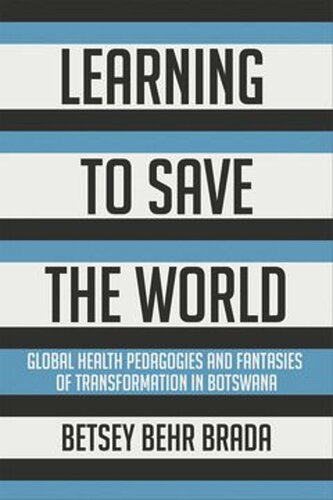

Most ebook files are in PDF format, so you can easily read them using various software such as Foxit Reader or directly on the Google Chrome browser.
Some ebook files are released by publishers in other formats such as .awz, .mobi, .epub, .fb2, etc. You may need to install specific software to read these formats on mobile/PC, such as Calibre.
Please read the tutorial at this link: https://ebookbell.com/faq
We offer FREE conversion to the popular formats you request; however, this may take some time. Therefore, right after payment, please email us, and we will try to provide the service as quickly as possible.
For some exceptional file formats or broken links (if any), please refrain from opening any disputes. Instead, email us first, and we will try to assist within a maximum of 6 hours.
EbookBell Team

4.8
104 reviewsLearning to Save the World provides an innovative analysis of how individuals inhabit, refuse, and reconfigure the contours of global health.
In 2001, Botswana's government, faced with one of the highest HIV prevalence rates in the world, committed itself to sub-Saharan Africa's first free public HIV treatment program. US-based private foundations and medical schools offered support to demonstrate the feasibility of public HIV treatment in Africa. Given American interest and investment in global health, this support created opportunities for American physicians and medical trainees to interact with local practitioners, treat patients, and shape health policy in Botswana.
While global health has emerged as a powerful call to planetary moral action, the nature of this exhortation remains unclear. Is global health a new movement for social justice, or is it neocolonial, creating new dependencies under the banner of humanitarianism? Betsey B. Brada shows that global health is a frontier, an imaginative framework that organizes the space, time, and ethics of encounter.
Learning to Save the World reveals how individuals and collectivities engaged in global health—visiting experts as well as local clinicians and patients—come to regard themselves and others in terms of this framework.